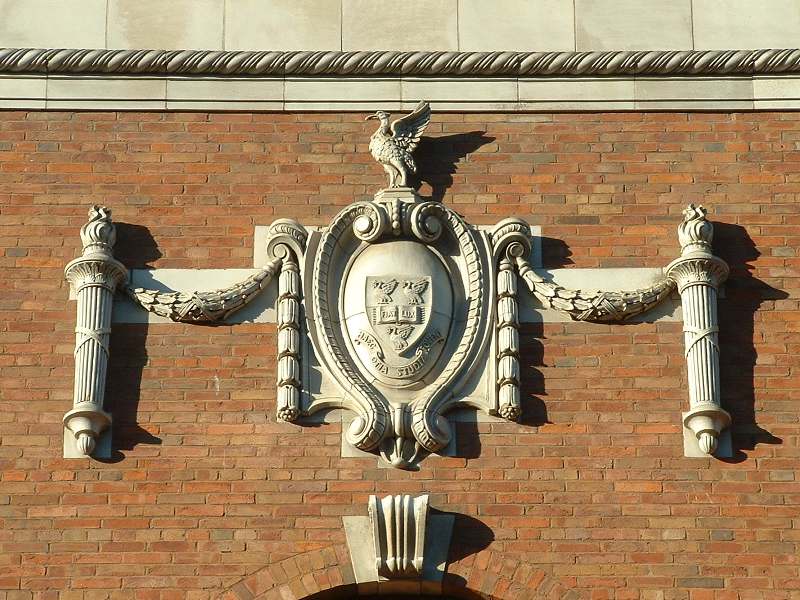Liverpool University, Liverpool L3

Picture by Pat Neill

|
Briggs & Thornely, each then working with a different partner, collaborated on The Port Of Liverpool Building, the first of the three graces at The Pier Head. They also designed India Buildings and the Bluecoat School in Wavertree. The stone dressings in the Herdman's brickwork are unnatributed but C.J. Allen was a regular collaborator and had recently retired from all his academic posts. The dressings show the university coat of arms within a cartouche flanked by swags and torches (representing enlightenment) mounted on fasces (representing power). The cartouche is surmounted by a liver bird. The coat of arms itself shows three liver birds surrounding an open book, bearing the inscription Fiat Lux (Let There Be Light). Beneath it is a banner bearing the University motto, Haec Otia Studia Fovent, (which best translates as 'these days of peace foster learning') The Department
of Geology was established in 1917, largely due to the generosity of
William Herdman. It moved to this new building in 1928. Through
innovation and amalgamation the building now houses The Department of
Earth and Ocean Sciences. Sir William Abbott Herdman (1858-1924) was
born in Edinburgh and appointed to The Derby Chair of Natural History at
Liverpool University College in 1881. He was later appointed as the
Professor of Oceanography at what had by then become The University of
Liverpool. He was a renowned marine zoologist and was knighted in 1922.
His first son, George, was killed during The Battle of The Somme and he
and his wife endowed The University's George Herdman Chair Of Geology in
their son's memory in 1915. Later they also endowed a chair of
Oceanography. Following Lady Herdman's death in 1922, he made a large
donation towards the building of new Geology Laboratories which were
named in memory of his wife and completed in 1929. He was no relation to
William Gawin Herdman (1805-1882) The Liverpool watercolour artist. Alan Maycock © 2007 Walks | Home Friends of Liverpool Monuments |